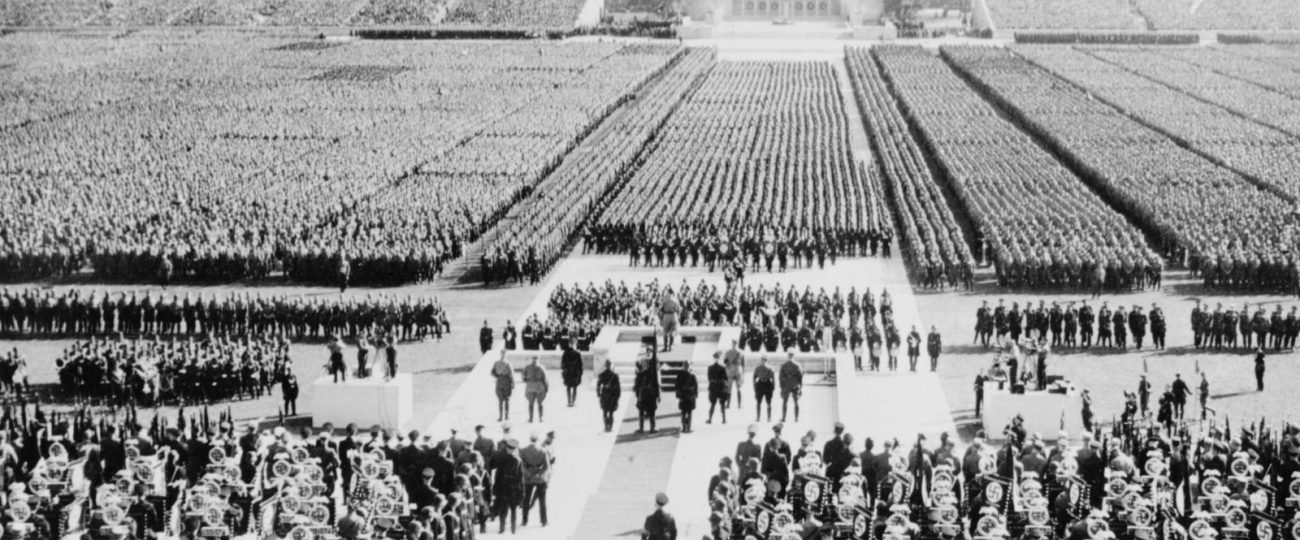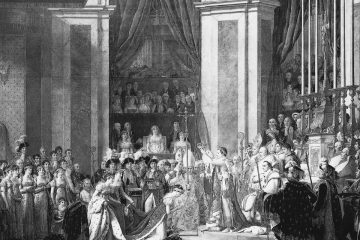What Happened On July 18th?
On July 18, 1925, Adolf Hitler published Mein Kampf. This book detailed Hitler’s ideas and plans for Germany and set the foundation for his regime’s future atrocities.. This book, a blend of autobiography and ideology, laid bare Hitler’s grandiose visions and deep-seated hatred.
Hitler found himself in a cell in Landsberg Prison, after the failed Beer Hall Putsch of 1923. This failed coup left him behind bars, yet it also provided him the solitude to pen his thoughts. With Rudolf Hess by his side, Hitler began dictating what would become a manifesto of unprecedented terror. The prison authorities, perhaps unwisely, allowed him numerous privileges, including a private room and unrestricted visits, giving him ample time to pour his grievances, ambitions, and racial theories onto paper.
In a chillingly candid section on propaganda, Hitler outlined his belief that propaganda must appeal to emotions, not intellect. He wrote, “The receptivity of the great masses is very limited, their intelligence is small, but their power of forgetting is enormous. In consequence of these facts, all effective propaganda must be limited to a very few points and must harp on these in slogans until the last member of the public understands what you want him to understand by your slogan.”
He criticized the propaganda efforts during World War I, claiming they failed because they didn’t target the common people effectively. According to Hitler, “Propaganda tries to force a doctrine on the whole people… but the idea to be propagated must be presented as far as possible in simple terms.” This insight set the tone for Nazi propaganda strategies. Eventually, massive rallies and media manipulation, orchestrated by Joseph Goebbels, would spread Nazi ideologies far and wide.
Hitler’s simple, repetitive slogans became ingrained in the public consciousness. He believed the average person’s limited understanding required constant reinforcement. Slogans like “Ein Volk, ein Reich, ein Führer” (“One People, One Nation, One Leader”) unified and mobilized the German populace, showing the terrifying effectiveness of his propaganda tactics.
The most disturbing aspects of Mein Kampf lie in its deep-seated anti-Semitism. Hitler viewed Jews as the ultimate enemy of the Aryan race, describing them as parasites responsible for Germany’s woes. He wrote of Jews as “a race tuberculosis of the peoples,” a disease he believed needed eradication.
Hitler’s obsession with racial purity extended to idealizing Nordic traits and preserving German blood. “The stronger must dominate and not blend with the weaker, thus sacrificing his own greatness,” he asserted.
His ideas were not born in a vacuum but were influenced by the pseudo-scientific racial theories of the early 20th century. He drew heavily from thinkers like Houston Stewart Chamberlain and was shaped by the eugenics movement.
In Vienna, Hitler encountered many anti-Jewish ideas during his years of poverty and frustration. His exposure to extreme nationalist and anti-Semitic pamphlets in the men’s hostels and soup kitchens fueled his growing resentment. This period, which he later described as self-education, set the stage for his ideological development.
After World War I, Germany’s economic hardship and national humiliation created fertile ground for Hitler’s anti-Semitic rhetoric. He blamed Jews for orchestrating Germany’s defeat and subsequent economic troubles, a narrative that resonated with a population desperate for scapegoats.
In Mein Kampf, Hitler argued that Germany needed to expand its territory to provide living space for its growing population. He envisioned this expansion at the expense of Slavic peoples. His call for more land foreshadowed the aggressive policies leading to World War II.
Hitler outlined a plan to conquer Eastern Europe, particularly targeting Russia. “When we speak of new territory in Europe today, we must principally think of Russia and her border states,” he wrote. Thus, Hitler and the Nazi Party invaded Austria in 1938.
This idea of Lebensraum, or living space, was rooted in German colonial aspirations and geopolitical theories. Hitler adapted these ideas to justify his expansionist ambitions, envisioning a vast empire for the German people.
But Lebensraum was more than a quest for land; it entailed the subjugation and elimination of those deemed inferior. This belief in racial hierarchy and territorial entitlement fueled the genocidal policies of the Nazi regime. For instance, the Generalplan Ost aimed to displace or exterminate millions of Slavs to make way for German settlers, revealing the brutal reality of Hitler’s expansionist vision.
Mein Kampf provided a clear blueprint for Hitler’s future actions. Its themes of propaganda, anti-Semitism, and territorial expansion led directly to the atrocities of the Holocaust and World War II.
As Hitler’s power grew, so did the influence of Mein Kampf. Initially, the book sold modestly, but by the time he became Chancellor in 1933, it had become a bestseller. The regime widely distributed it, often giving it as a gift to newlywed couples and soldiers, ensuring Hitler’s ideas reached every corner of society.
By studying Mein Kampf, historians and scholars gain insight into the methods used by totalitarian regimes to manipulate and control populations. The book provides a case study in how propaganda, racism, and expansionist policies combined to create a destructive force.





